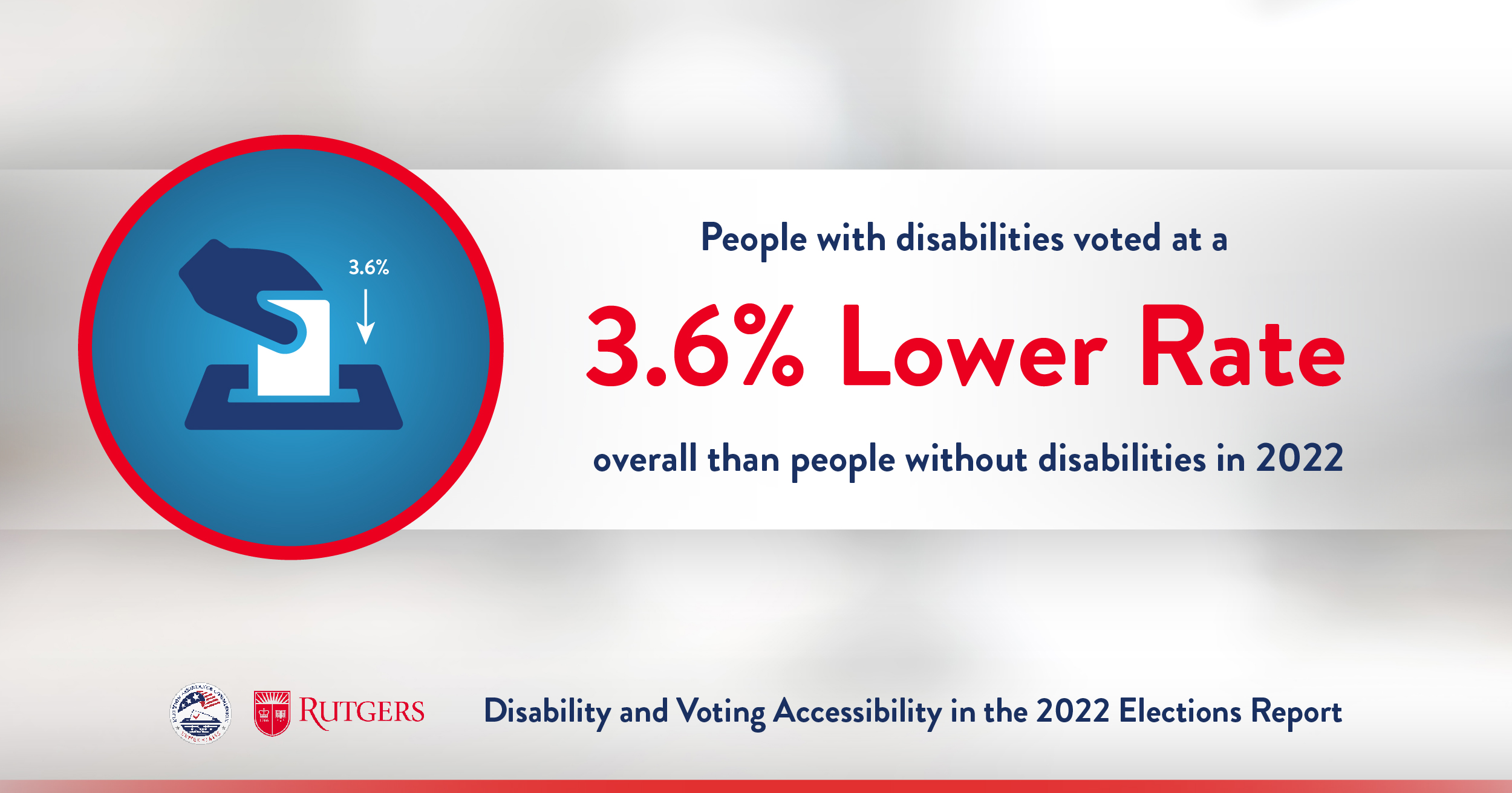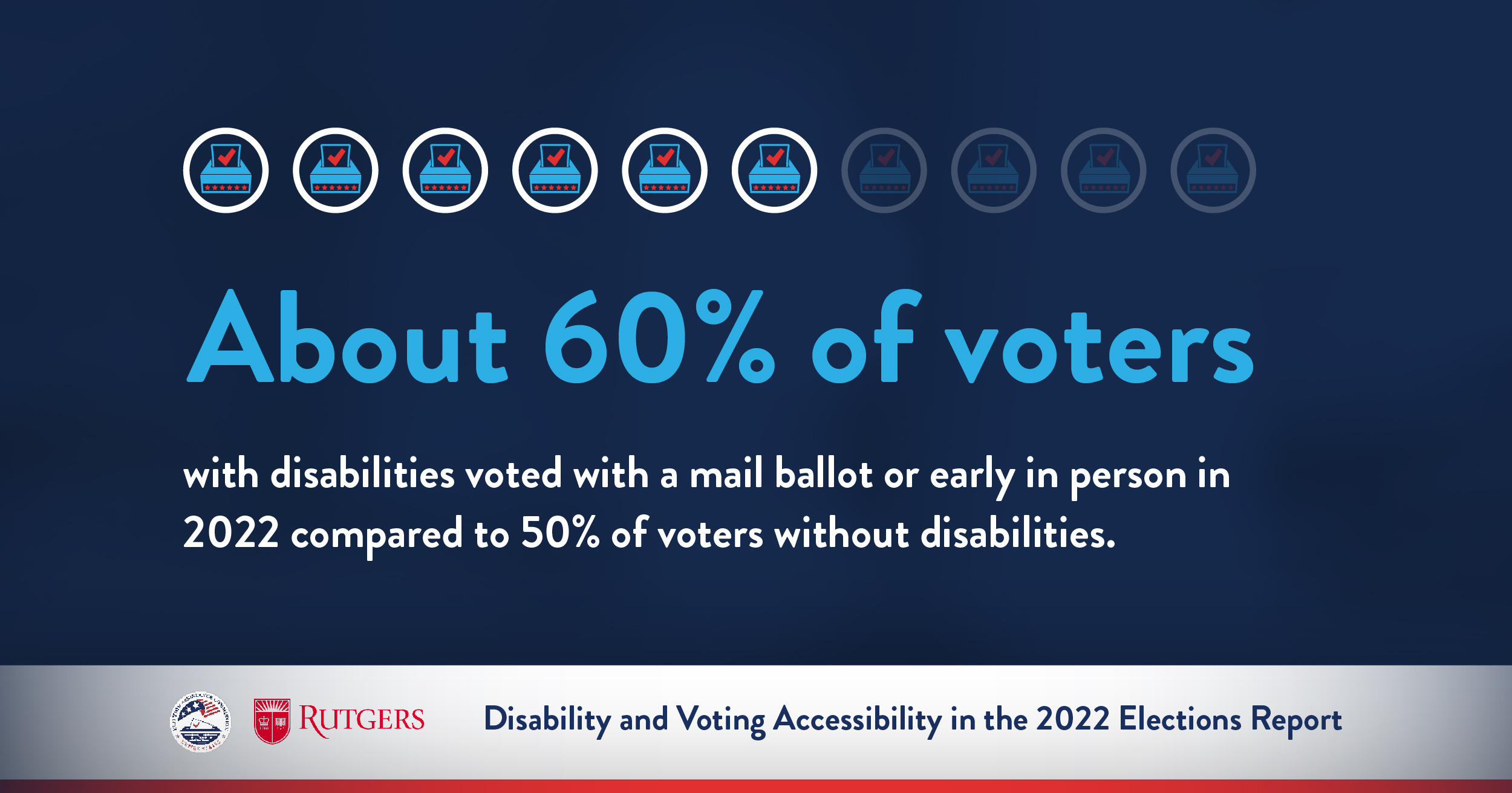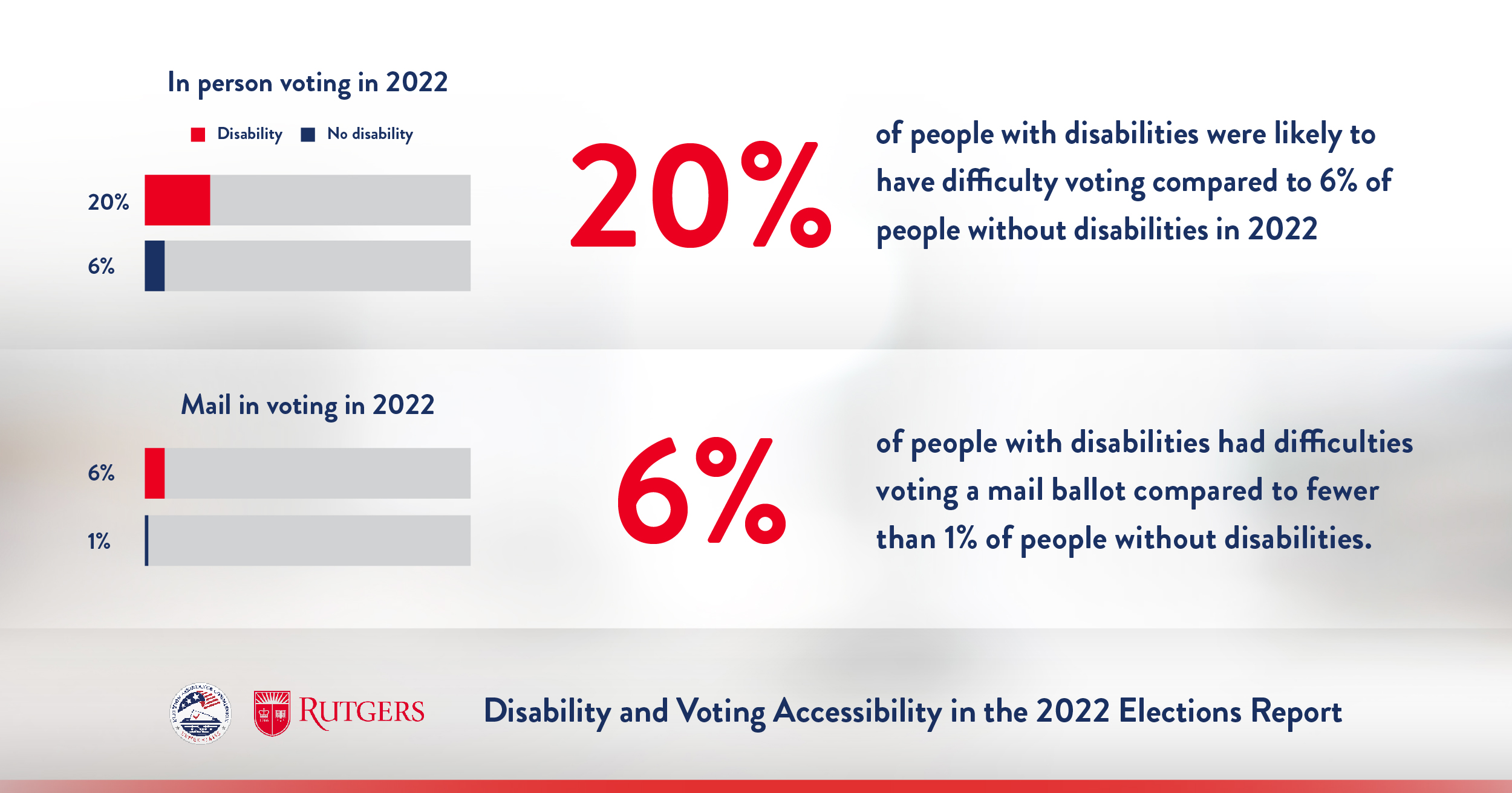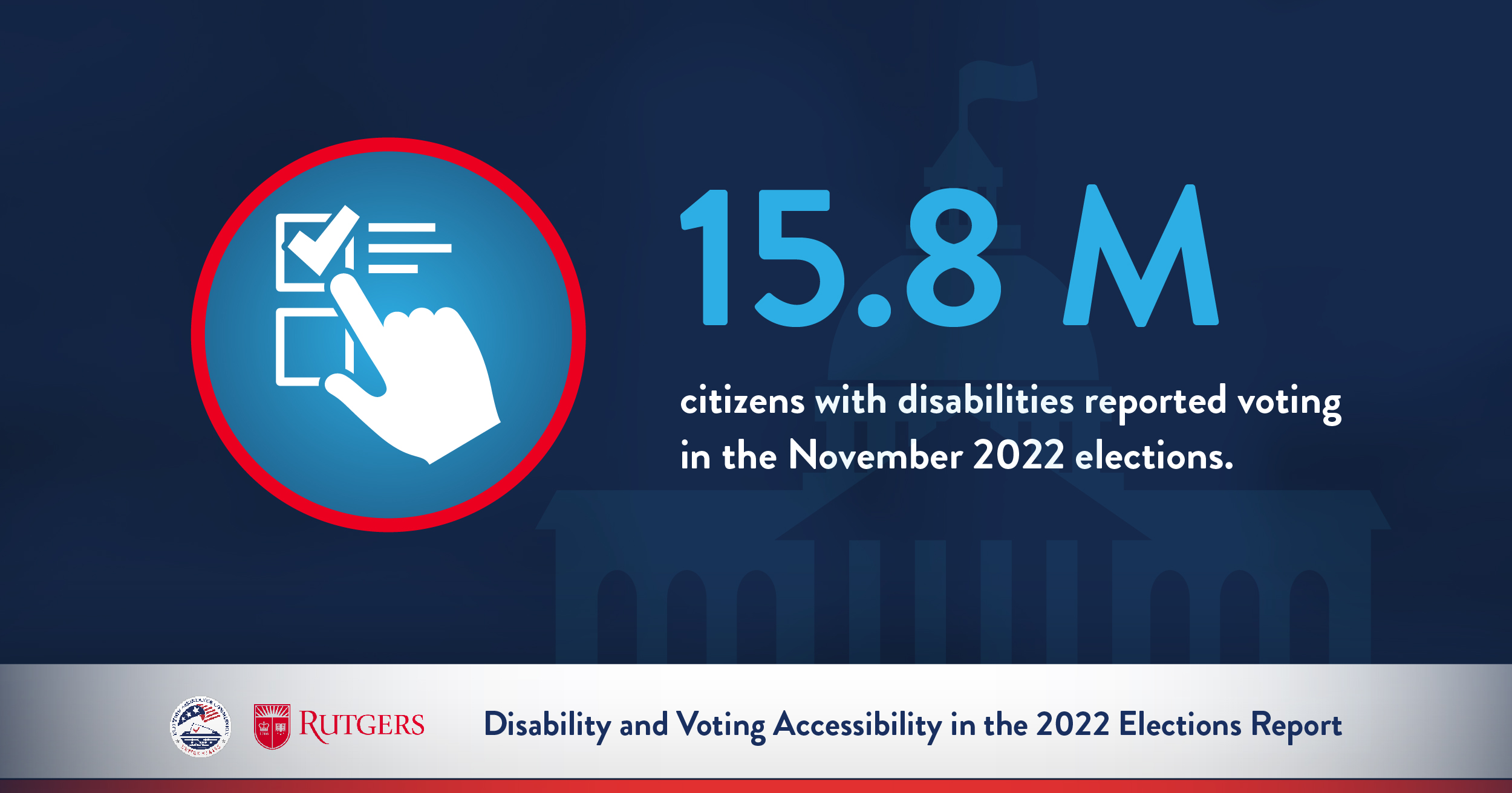The U.S. Election Assistance Commission (EAC) partnered with Rutgers University to survey voting-eligible citizens with and without disabilities following the 2022 elections. The newly released “Disability and Voting Accessibility in the 2022 Elections” found that after a substantial drop in voting difficulties among people with disabilities over an eight-year period, there was a slight uptick in the 2022 election.
The increase can partly be explained by a shift toward voting in person in the last election, a trend brought on by the end of the COVID-19 pandemic-related policies. Still, the study notes overall progress in the last decade in accessibility for voters.
The results of the survey suggest early voting and voting by mail made the voting process more accessible for Americans with disabilities. Ensuring that eligible voters with disabilities are aware of the range of options to cast a ballot in their community is critical for addressing any downturns in turnout.
The researchers also analyzed 2022 voter turnout using Census data. The report, “Disability and Voter Turnout in the 2022 Elections: Supplemental Analysis of Census Voter Turnout Data,” is available as a PDF and a Word document. Conducting these surveys following major elections allows the EAC to better understand what is working for American voters and most importantly, what is not.
The results from this survey and previous iterations show there has been significant progress made in voting accessibility since the EAC began working with Rutgers in 2012. Nevertheless, voting difficulties increased slightly among voters with disabilities from 2020 to 2022. These findings indicate the work election officials are doing to serve this population of voters should continue to fulfill the Help America Vote Act’s (HAVA) promise of accessible elections for all Americans.
HAVA, which established the EAC, ensures that all voters with disabilities have the right to mark, cast, and verify their ballots privately and independently. The EAC provides accessibility resources for election administrators and voters to realize this part of the agency’s mission. This includes best practices guides, quick start guides, and other resources for election officials, as well as federal voting rights cards for voters. These cards are available in braille and large print or pocket-sized. You can email [email protected] if you would like to request copies.
About the “Disability and Voting Accessibility in the 2022 Elections” Study
The survey included 2,001 respondents, stratified to include 1,198 citizens with disabilities and 803 without disabilities. As in previous years, the oversampling of citizens with disabilities was done to get a large enough sample for small margins of error and reliable breakdowns by major types of disability and demographic variables.
The team from Rutgers was led by Professors Lisa Schur and Douglas Kruse, Co-Directors of the Program for Disability Research at the School of Management and Labor Relations at Rutgers University. The study was also conducted by Mason Ameri, Associate Professor of Professional Practice at the Rutgers Business School, and Professor Meera Adya, Department of Administration, Rehabilitation, & Post-Secondary Education, Interwork Institute at San Diego State University.





